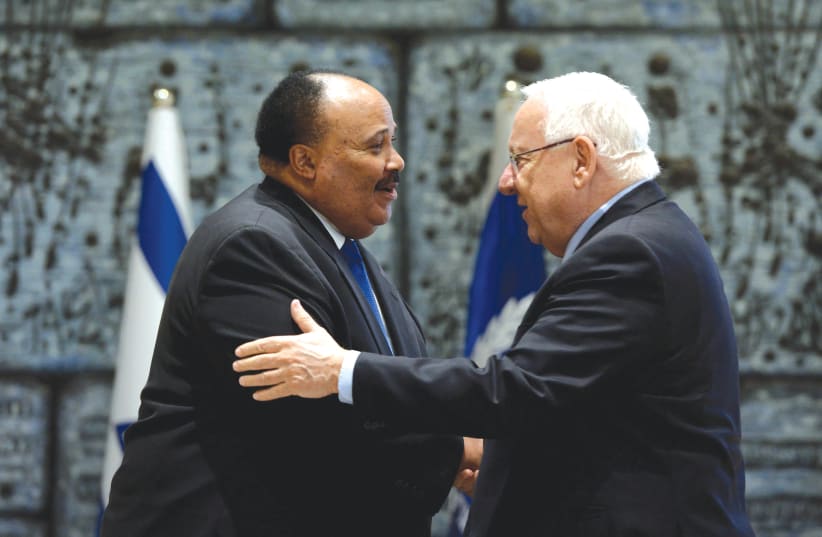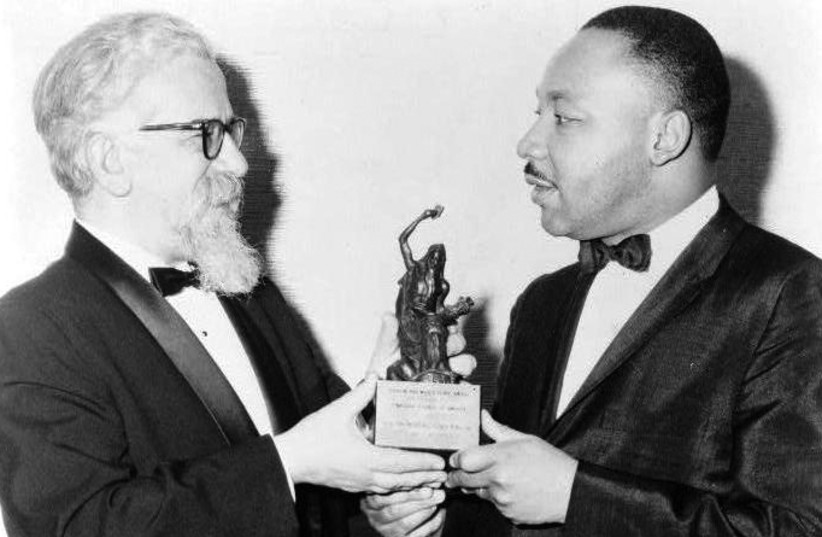The events over the last couple of months involving the black and Jewish communities have triggered a lot of thought-provoking questions and concerns. During my entire time working for Jewish non-profits, leaders of these organizations encouraged us to use the strong history of solidarity between black and Jewish communities as part of our outreach.
When educating Jewish university students, we always discussed the special relationship between Dr. Martin Luther King and Rabbi Heschel. We used quotes from influential black leaders to showcase how these figures were supporters of Zionism at a time when Israel was vulnerable.
Looking back now, I realize that historically, the relationship between both communities is a lot more complicated, and today is no different. While black and Jewish solidarity during the civil rights movement sounds beautiful, those stories don’t resonate with my generation because it’s not our reality anymore. Historically the black and Jewish communities supported one another, but clearly, things are different now.
So what happened? How did we get here?
Since the civil rights movement, different events have caused friction between our communities, which have dampened the good relationship which black and Jewish people once shared. Over time, antisemitism and racism have infested both groups. In addition, various events, like the Crown Heights riots, created tension. Hate also spewed from extremist groups and organizations like the Nation of Islam, causing more friction.
Today, black nationalists like Louis Farrakhan and his followers are normalizing antisemitic rhetoric. And now, prominent figures like Kanye West openly spreads antisemitic conspiracy theories while promoting extremists from the Black Hebrew Israelite community who openly support Hitler and the Nazis on the streets of New York.
The black and Jewish communities have, in the past, worked together as vulnerable groups to fight for equality. Over the years, they lived as neighbors in segregated neighborhoods in the US.
Their alliance had some profound moments. Jewish philanthropist Julius Rosenwald teamed up with Booker T. Washington to create schools for black children in the south. Rosenwald donated $70 million to build 5,000 schools for black children.
Black colleges also stepped in during World War II to rescue Jews from Germany. After the Nazis took power, the US failed to take immediate action, thus administrators from Historically Black Colleges and Universities (HBCUs) saved 50 Jewish-German scholars by hiring them.
DURING THE Holocaust, black people were outspoken about Jewish oppression at the hands of Nazis. Similarly, American Jews played a significant role in major civil rights organizations, including the National Association for the Advancement of Colored People (NAACP), and even sat on their executive boards. Influential black leaders were outspoken Zionists and even played a role in founding a Jewish state, while prominent Jewish leaders marched on the front lines of civil rights campaigns. The list goes on.
It is important to emphasize this history. It is noteworthy how these two groups, with shared complex and painful histories, found ways to support each other. But highlighting this history doesn’t address the changing tide, nor does it speak to today’s youth who didn’t live through (nor resonate with) those times. While I do not doubt that the silent majority of black and Jewish people would stand up for one another, the issues of today need to be understood so that both communities regain trust in each other.
One layer of complexity (which has been a source of tension these past couple of months) is black and Jewish representation in Hollywood, sports and entertainment. Jewish people hold many management positions, including some might argue, the overrepresentation of black athletes and musicians, which has caused some disparity between our groups.
Another issue that has caused further friction, is the alienation of Jews from the Black Lives Matter (BLM) movement. Prominent figures from BLM, like Tamika Mallory (also co-chair of the Women’s March), have fostered antisemitism in both movements, making it harder for Jews to feel welcome in these progressive causes.
In an interview, Mallory refused to condemn and disavow Nation of Islam leader Louis Farrakhan, who has a long history of antisemitism and has called Jews “termites.” To twist the knife further, BLM Co-Founder Patrisse Cullors called Palestine “our generation’s South Africa” and stated that we are “doomed” if we don’t stop the “imperialist project that is called Israel.” These statements are a polite way of normalizing violence and extremism against Israelis, and Jews in general.
The unfortunate thing about this is that I support the essence of the BLM movement. I believe black Americans deserve equality and justice, and I agree that America has a long way to go in eliminating institutionalized racism. Yet these organized groups and “leaders” are actively using their platforms to harm my community.
When Jewish people experience this, how are we supposed to latch on to the historical brotherhood that our communities enjoyed? Our history does not resonate with today’s generation anymore. Educating our communities about it is essential, but pushing it without resolving current issues will not bring us back to where we were. The reality today is that extremists in our communities perpetuate stereotypes that divide us and sow mistrust between us, making us forget our history of solidarity and the connection that we once had.
So, where do we go from here?
We cannot forget that white supremacy is our common enemy. Racism and antisemitism are closely linked and often go hand in hand. Our job is to show up for one another, despite the noise that extremists make. It’s up to us to create a renaissance of leaders to rekindle the legacies of people like Dr. Martin Luther King and Rabbi Heschel.
It may feel like our world is too far gone, but hope is not lost. We can’t afford to lose each other, because if we do, the people who seek to harm our communities win.
The writer is a social media activist with over 10 years experience working for Israeli, Jewish and cause-based NGOs. She is the co-founder and COO of Social Lite Creative, a digital marketing firm specializing in geopolitics.

